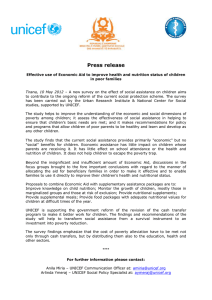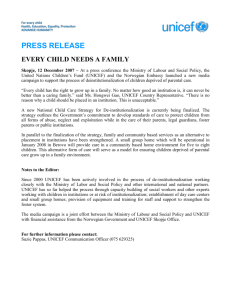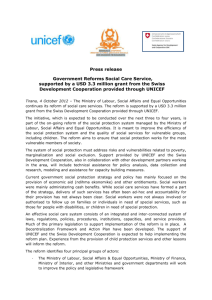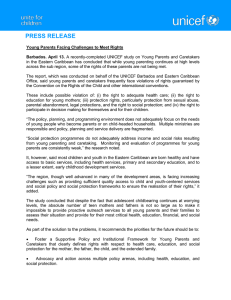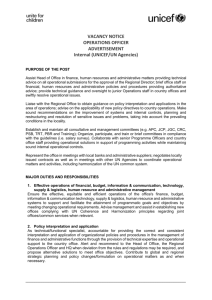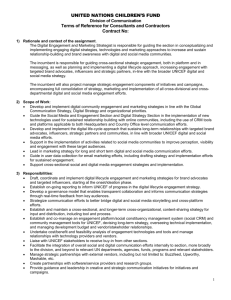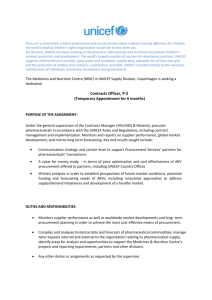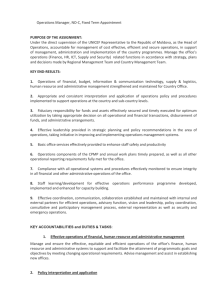media advisory
advertisement
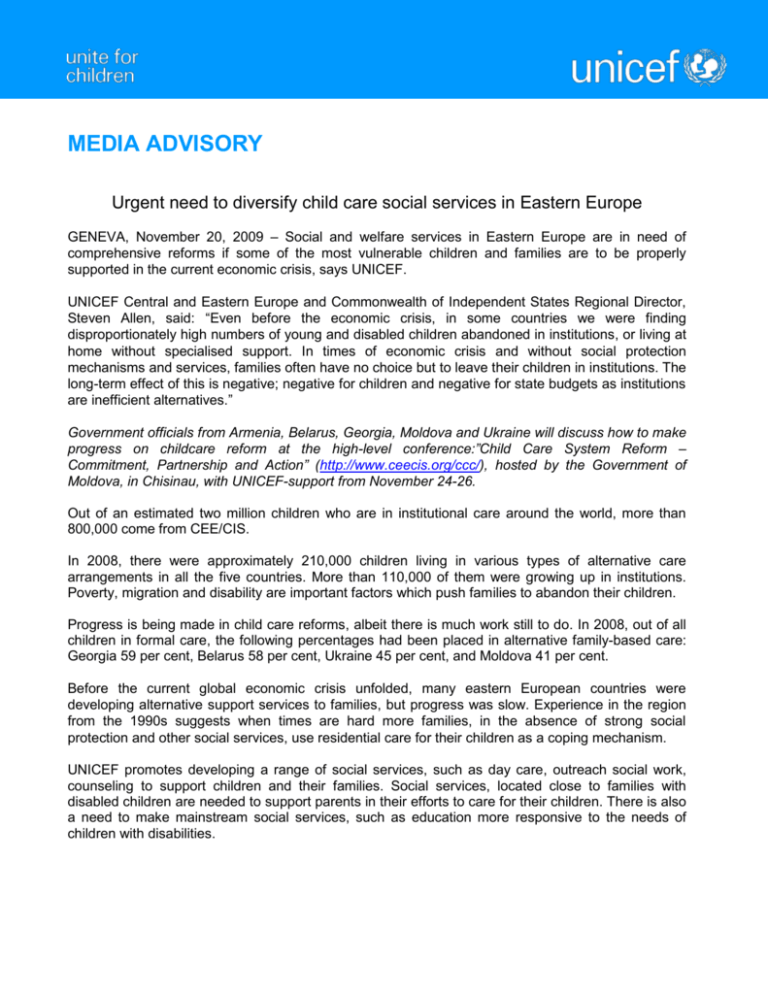
MEDIA ADVISORY Urgent need to diversify child care social services in Eastern Europe GENEVA, November 20, 2009 – Social and welfare services in Eastern Europe are in need of comprehensive reforms if some of the most vulnerable children and families are to be properly supported in the current economic crisis, says UNICEF. UNICEF Central and Eastern Europe and Commonwealth of Independent States Regional Director, Steven Allen, said: “Even before the economic crisis, in some countries we were finding disproportionately high numbers of young and disabled children abandoned in institutions, or living at home without specialised support. In times of economic crisis and without social protection mechanisms and services, families often have no choice but to leave their children in institutions. The long-term effect of this is negative; negative for children and negative for state budgets as institutions are inefficient alternatives.” Government officials from Armenia, Belarus, Georgia, Moldova and Ukraine will discuss how to make progress on childcare reform at the high-level conference:”Child Care System Reform – Commitment, Partnership and Action” (http://www.ceecis.org/ccc/), hosted by the Government of Moldova, in Chisinau, with UNICEF-support from November 24-26. Out of an estimated two million children who are in institutional care around the world, more than 800,000 come from CEE/CIS. In 2008, there were approximately 210,000 children living in various types of alternative care arrangements in all the five countries. More than 110,000 of them were growing up in institutions. Poverty, migration and disability are important factors which push families to abandon their children. Progress is being made in child care reforms, albeit there is much work still to do. In 2008, out of all children in formal care, the following percentages had been placed in alternative family-based care: Georgia 59 per cent, Belarus 58 per cent, Ukraine 45 per cent, and Moldova 41 per cent. Before the current global economic crisis unfolded, many eastern European countries were developing alternative support services to families, but progress was slow. Experience in the region from the 1990s suggests when times are hard more families, in the absence of strong social protection and other social services, use residential care for their children as a coping mechanism. UNICEF promotes developing a range of social services, such as day care, outreach social work, counseling to support children and their families. Social services, located close to families with disabled children are needed to support parents in their efforts to care for their children. There is also a need to make mainstream social services, such as education more responsive to the needs of children with disabilities. MEDIA ADVISORY Universal and accessible social protection schemes, such as cash assistance and support to housing, should be available for all families in need. When children cannot stay with their biological families, alternatives to institutions that provide family-based care, such as fostercare, and support to kinship care, are needed. UNICEF advises central governments to ensure that a minimum package of social services are made available at local level, with equitable distribution in the countries. Local level governments are advised to assess and monitor individual cases more effectively to ensure that care plans that respond to each child’s and family’s specific needs are in place. Developing new services in conjunction with efforts to transform, and close residential care homes are important targets for reform. Watch a ‘OneMinuteJnr’ film produced by a Moldovan teenager living in an institution: http://www.unicef.org/ceecis/reallives_12851.html ***ENDS*** For more information contact UNICEF CEE/CIS Communication Officer Mervyn Fletcher on +41 22 909 5433, mfletcher@unicef.org or visit the Child Care Reform Process website: http://www.ceecis.org/ccc/
